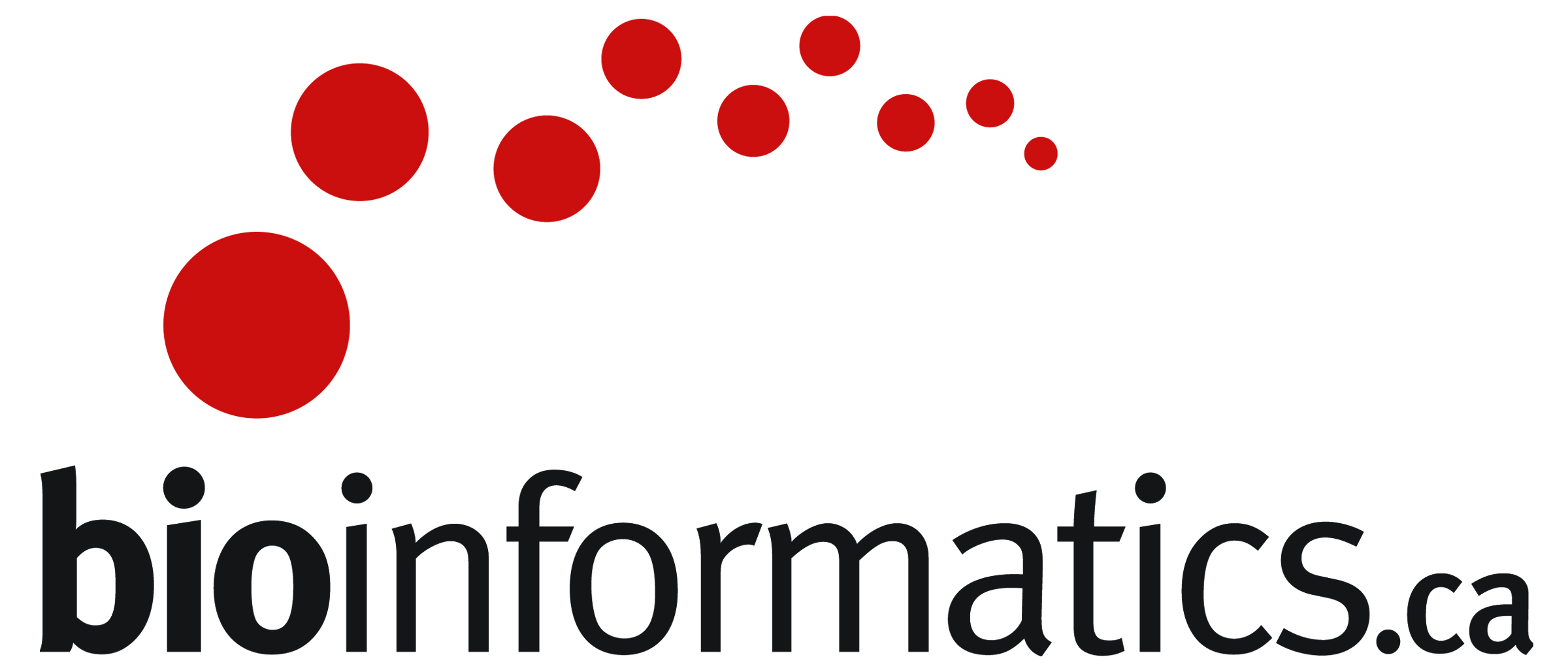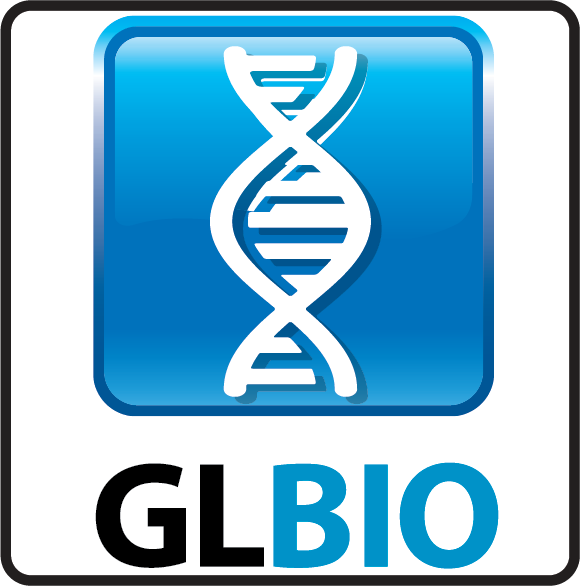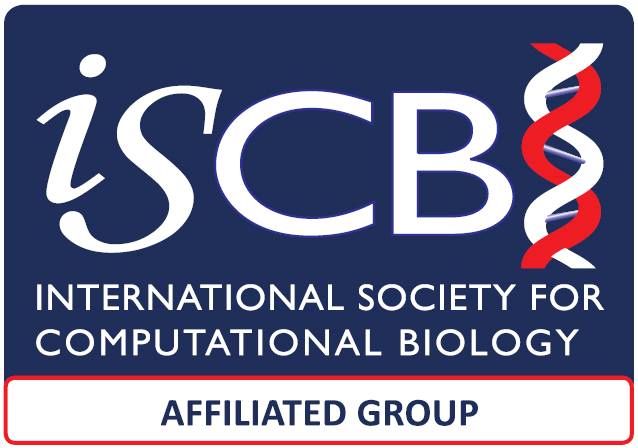ISCB Affiliated Groups
| NORTH AMERICA |
Contact: This email address is being protected from spambots. You need JavaScript enabled to view it.
Geographical area included: Canada
Leadership Structure: Scientific Director – Dr. Michelle Brazas (OICR)
Program Manager – Nia Hughes (OICR)
+Education Advisory Committee consisting of:
● Francis Ouellette, Retired Scientific Director, Bioinformatics.ca
● Stephanie Butland, Biologist-Bioinformatician, rOpenSci
● Michelle Brazas, Director, Ontario Institute for Cancer Research
● Patricia Palagi, Biologist and Computer Scientist, Swiss Institute of Bioinformatics
● Veronique Voisin, Scientific Affiliate, Princess Margaret Cancer Center
● Benjamin Haibe-Kains, Senior Scientist, Princess Margaret Cancer Centre; Professor, Medical Biophysics Department, University of Toronto
● Eric Merzetti, Manager, Genome Alberta
● Rob Beiko, Associate Professor in Bioinformatics, Dalhousie University
● Erum Razvi, Advisor - Sector Innovation & Programs, Ontario Genomics
Goals: Vision – To become a leader in bioinformatics education, networking and outreach
Mission – To accelerate the use of bioinformatics as a tool in health and life sciences through education, networking and outreach
Objectives:
- Provide bioinformatics and computational biology short-format training and resources
- Support community networking through local meetups and conferences in bioinformatics and computational biology
- Establish a strong network of bioinformatics and computational biology experts
- Support bioinformatics and computational biology career opportunities for Canadians
- Represent the interests of bioinformatics and computational biology research in Canada
History – Bioinformatics.ca and the Canadian BioinformaBioinformatics.ca and the Canadian Bioinformatics Workshops (CBW) were established in 1999 by Francis Ouellette and colleagues to address the need for a skilled computational science workforce in Canada. Since then, Bioinformatics.ca has become an integral component in the national bioinformatics and computational biology community with CBW being recognized as an international leader in bioinformatics skills dissemination. Under a mission to accelerate the use of bioinformatics as a tool in health and life sciences through education, networking and outreach, CBW has trained 5500+ scientists (1999-2023) in basic and advanced bioinformatic topics over 200+ workshops.
In 2024 we were awarded a Health Research Training Platform (HRTP) Grant from the Canadian Institutes of Health Research (CIHR) and Genome Canada, to scale our operations across the Country. Bioinformatics.ca is an active member in the Global Organization of Bioinformatics Learning, Education and Training (GOBLET, mygoblet.org), a network of organizations dedicated to bioinformatics training, as well as the Computational Biology Education (CoBE) COSI at ISCB.
Activities:
Training Activities – CBW provides virtual and in-person short format training in a variety of advanced bioinformatics, computational biology, and data science topics. In 2024, we offered fifteen unique workshops, held across Canada and virtually. We piloted four new topics as well as hybrid and asynchronous formats, both of which were new to CBW. Over the season as a whole, we taught 371 participants from 15 countries and received overwhelmingly positive feedback in the post-workshop surveys.
In 2024, we developed new collaborations for training development and delivery. In collaboration with Panoramics - A Vision and the Brain Single Cell Initiative, CBW offered a new Introductory Spatial ‘Omics Analysis workshop that was fully funded for all participants. With the Ontario Molecular Pathology Research Network, we offered the new Bridging Pathology and Genomics: A Practical Workshop on NGS for Pathologists and Pathology Researchers to Ontario pathologists.
The 2024 CBW workshops are posted on our main website. Past content, including slide decks, lecture recordings, datasets, and exercises are available open-access on GitHub (bioinformaticsdotca.github.io) and YouTube (@bioinformaticsdotca).
Community Networking Activities – Several Bioinformatics User Groups (BUGs) operate across Canada to bring together trainees, researchers, and other professionals with a shared interest in the field of bioinformatics, computational biology, and data science. BUGs operate in Toronto (TorBUG), Montreal (MonBUG) and Vancouver (VanBUG). BioNet is another user community which operates in Alberta.
2024 was the 25th anniversary of Bioinformatics.ca and the Canadian Bioinformatics Workshops. To celebrate this, we held a party during the ISCB Intelligent Systems for Molecular Biology (ISMB) conference held July 12-16 in Montréal, Canada, open to all registered attendees. The event was attended by many past, present, and potential Bioinformatics.ca collaborators and participants. Through the efforts of our founding Director and Honorary ISMB Chair, Francis Ouellette, Bioinformatics.ca secured significant federal funding for ISMB. Bioinformatics.ca was also a sponsor, ran a booth, and coordinated a Bioinformatics in Canada session. Our leadership team is heavily involved in the ISCB Education Committee and COSI, and through these roles, contributed to the Education sessions at ISMB.
Our Scientific Director and Program Manager were on the planning committee for, and ran sessions at, the 2024 Global Bioinformatics Education Summit. Held May 20-22 in a hybrid format between New York City and online, this event had 69 in-person and 200 virtual attendees. Bioinformatics.ca was a key sponsor.
Expertise Activities – Bioinformatics.ca maintains an active directory of bioinformatics, computational biology and data science experts across the country to facilitate research collaborations, trainee mentorship and community building. In 2024, we overhauled our experts directory, ensured existing content was up to date, and brought in Canadian experts who had not previously been listed.
Career Support Activities – Bioinformatics.ca continues to manage an active bioinformatics Jobs Board, featuring a wide variety of bioinformatics, computational biology and data science positions across Canada and globally. All postings must be eligible for Canadian applicants. The Jobs Board at Bioinformatics.ca posted 61 jobs in 2024, reaching 2000+ subscribers via email and many more through its social media feeds.
Advocacy Activities – Bioinformatics.ca continues to champion bioinformatics and computational biology resources and needs in support of research in Canada. Recent efforts have resulted in a Bioinformatics and Computational Biology Strategic Framework for Canada (https://bioinformatics.ca/bcb-framework/).
Activities and programs that demonstrate the advancement of bioinformatics and computational biology:
In 2025 and beyond, Bioinformatics.ca aims to offer many new opportunities and activities. The guiding principles of our forthcoming Canadian Bioinformatics Hub are being developed and the governance committees are being established. Additionally, we are in the early stages of redeveloping our website; the new site will have significantly expanded functionality, including cross-provider training and community calendars, mentorship opportunities, and learning paths as described below.
To develop community, we intend to develop new BUGs in regions across the country. We aim to offer a pan-Canadian bioinformatics conference annually, for the first time in Canada. The Hub will also administer a large awards program to support Canadian students and early-career researchers, and offer an IDEA-centric mentorship program as well as a professional skill development program.
For training activities, we will be significantly scaling up the Canadian Bioinformatics Workshops, with new offerings and new locations. CBW is additionally implementing new inclusivity measures, including awards for equity-deserving applicants. We are currently mapping existing workshops to competencies, and users on the new Hub site will be able to select and track learning paths based on these competencies in order to meet their training needs.
Last Updated January 31, 2025
Contact: Daisuke Kihara; This email address is being protected from spambots. You need JavaScript enabled to view it.
Lonnie Welch; This email address is being protected from spambots. You need JavaScript enabled to view it.
Russell Schwartz; This email address is being protected from spambots. You need JavaScript enabled to view it.
Geographical area included: Illinois, Indiana, Michigan, Minnesota, New York, Ohio, Ontario, Pennsylvania, Quebec, and Wisconsin
Leadership Structure: Conference Steering Committee:
Bruce Aronow, Children's Hospital Medical Center, University of Cincinnati
Gary Bader, University of Toronto
Robert Blumenthal, University of Toledo
Sarath Chandra Janga, Indiana University Purdue University
Sorin Draghici, Wayne State University
Bruno Gaeta, University of New South Wales (Ex Officio)
Anthony Gitter, University of Wisconsin-Madison
Daisuke Kihara, Purdue University
Dan Knights, University of Minnesota
Jundong Liu, Ohio University
Tijana Milenkovic, University of Notre Dame
Chad Myers, University of Minnesota
John Parkinson, Hospital for Sick Children
Catherine Putonti, Loyola University
Predrag Radivojac, Northeastern University
Sushmita Roy, University of Wisconsin-Madison
Russell Schwartz, Carnegie Mellon University (Co-chair)
Lonnie Welch, Ohio University (Co-chair)
2024 GLBIO Program Chairs:
Maria Chikina, University of Pittsburgh
Dannie Durand, Carnegie Mellon University
Shaun Mahony, Pennsylvania State University
Publication Chairs:
Shaun Mahony, Pennsylvania State University
Poster Chairs:
Guenter Tusch, Grand Valley State University
Helen Piontkivska, Kent State University
Travel Fellowship Chairs:
Dan DeBlasio, Carnegie Mellon University
Getiria Onsongo, Macalester College
Goals: The Great Lakes Bioinformatics Consortium strives to enhance educational opportunities and research infrastructure throughout the region, to make the Great Lakes a world leader in bioinformatics and to facilitate new discoveries in data-intensive biological research. The Consortium has chosen to center its activities on the Great Lakes Regional Bioinformatics Conference (GLBio), and to accomplish its goals as an affiliate society through that meeting. This includes providing a venue for regional scientists and other interested attendees to meet and share research results, providing a platform for discussion of topics of shared interest through conference activities and special sessions, and providing opportunities for students to present their work at a local scientific meeting and to interact with other scientists and potential future employers.
Brief history: Over the past decade, there have been 3 independent initiatives that have culminated in this proposal to form the Great Lakes Bioinformatics Consortium. Starting in 2002, there was a Michigan-based "Great Lakes Bioinformatics Retreat" that was sponsored and hosted by the Michigan Center for Biological Information (MCBI) a Michigan Life Science Corridor-funded initiative led by Dr. Brian Athey. This program held yearly retreats, from 2002-2006, with keynote speakers, and student oral presentations; the locations were primarily in Michigan. There was a board of directors for a proposed Great Lakes Bioinformatics Consortium that first convened in August 2004 and consisted of representatives from most of the great lakes bioinformatics programs which are outlined in this proposal. The Consortium did not reach critical mass, and may have been too Michigan-centric; however, there remains a strong interest in regional networking and collaboration, and professional engagement.
A second initiative is the Midwest Symposium on Computational Biology and Bioinformatics. MSCBB is an ongoing conference series, which held 1-day meetings in Illinois in 2007 and 2008, attracting over 300 attendees. The meetings included keynote speakers, invited talks, and student poster presentations. Merit-based student poster awards were given during the meetings. Registration fees were waived, to encourage the participation of students. Future meetings are planned. The MSCBB Chair is Prof. Ping Ma of University of Illinois, and the conference committee consists of faculty from universities in Indiana, Illinois and Michigan.
A third initiative was created in Ohio. Ohio researchers, educators, and industry leaders collaboratively organized the annual Ohio Collaborative Conferences on Bioinformatics (OCCBio), with its inaugural meeting in June 2006. In August 2007, the OCCBio conference leadership formally united to form the Ohio Bioinformatics Consortium; OBC leveraged the existing statewide research community to enhance Ohio’s role in bioinformatics education and research. In May 2008 the consortium was awarded $9M from the University System of Ohio and 12 academic institutions. The funds provide scholarships for five years to hundreds of graduate and undergraduate students who study bioinformatics in universities across the state of Ohio.
Activities:
The Great Lakes Bioinformatics Consortium devotes itself primarily to running the GLBio conference, which occurs annually with some exceptions (e.g., when ISMB is held in the Great Lakes region). The meeting serves as an annual meeting for tutorials, and oral and poster presentations of new research. The meeting will also serve as an informal communication and networking forum for the professional development of members (faculty and students). We believe that by bringing together the Great Lakes bioinformatics community on a regular basis, many new initiatives will be born.
GGLBIO 2024 took place at University of Pittsburgh in Pittsburgh, Pennsylvania, United States from May 13 to May 16, 2024. We had 254 registrations and a total of 19 full-length paper manuscripts were submitted, out of which 4 were selected for publication in Bioinformatics Advances. A total of 90 abstracts were submitted for oral presentations, and 55 were selected for inclusion as oral presentations in the conference program. Finally, 46 abstracts were submitted for poster presentations, out of which 42 were accepted. In addition, there were 30 late breaking posters, all of which were accepted. All submissions for the conference underwent a rigorous peer-review process. The selected papers and abstracts encompassed a wide range of topics, including sequence analysis, machine learning, population genomics, cancer genomics, gene regulation, single-cell RNA sequencing, phylogenetics and evolution, software, and databases, among others. The majority of participants are from the US but we also had participants from Canada, India, UAE, China, Chile, Germany, Nepal, Nigeria, and Pakistan. The program featured 6 keynote talks presented by Oana Carja, Mingfu Shao, Nathan Clark, Sarah Bagby, Daniel Lobo, and Andreas Pfenning, and 4 tutorials/workshops.
We are now preparing GLBIO2025 to be held on May 12-15 2025 in Minneapolis hosted by University of Minnesota in Minneapolis.
Activities and programs that demonstrate the advancement of bioinformatics and computational biology:
The Consortium's activities are centered on the GLBio conference. Information on the previous GLBio meetings can be found here:
https://www.iscb.org/glbio2019
https://www.iscb.org/glbio2021
https://www.iscb.org/glbio2023
https://www.iscb.org/glbio2024
https://www.iscb.org/glbio2025
Last Updated January 31, 2025
Contact: Inimary Toby-Ogundeji
Board Member, MCBIOS
Associate Professor, Biology
University of Dallas | Constantin College of Liberal Arts
1845 E Northgate Dr | Patrick E. Haggerty Science Bldg #141
Irving, TX 75062 | Ph. 972-721-5109
Geographical area included: Mid-South (United States)
Leadership Structure: Link to current leadership is available on our website at the following link: https://www.mcbios.com/board-of-directors/
Leadership comprise of the following:
Presidential office (president, president-elect, and past president)
Board of Directors
Secretary
Treasurer
Student Representative
Goals: 20 years ago, MCBIOS was formed. The mission of MCBIOS is to foster networking and collaboration and to promote the professional development of members and supporting our student members.
In its early years, the MCBIOS organization began as a grassroots effort spearheaded by a group of researchers. The first set of annual conferences were organized within the Mid-South regions which had large representation of members in the society. The support by INBRE and FDA in providing funds for the annual conferences has been unwavering over the years. In addition, board members worked together on securing venues and speakers to highlight the growing areas of expertise within the field. The organization is 100% volunteer based and there are no paid staff members. In the recent years, the addition of a part time webmaster was critical to enable website management and a graduate shift to provide the society with a new face lift online. Social media handles were organized for the society and are managed by the student representation along with support from the communications committee.
The purposes of the Society are scientific, educational, literary, charitable, and no other. In furtherance of these purposes, the business and objectives of the Society shall be
(a) to advance the understanding of bioinformatics and computational biology;
(b) to bring together scientists of various backgrounds and disciplines;
(c) to facilitate the collaboration of researchers with similar or complementary backgrounds to solve biological, health, and/or medical problems;
(d) to promote education in bioinformatics and computational biology;
(e) to inform the general public on the results and implications of current research in bioinformatics and computational biology; and
(f) to promote other activities that will contribute to the development of bioinformatics and computational biology.
The Society will especially support, encourage, and mentor our Trainee Members.
Activities:
The 20th Annual Meeting of MCBIOS was held in Atlanta, GA on the campus of Emory University with the theme of "From codes to cells to care, transforming healthcare with AI" from March 22-24, 2024.
Call for technical sessions and workshops was issued and a variety of scientific sessions on broad topics were provided.
Keynote speakers were: Anant Madabhushi (Emory University & Georgia Tech), Greg Gibson (Georgia Tech), Nancy J. Cox (Vanderbilt University Medical Center), and Heng Li (Dana Faber Cancer Institute & Harvard Medical School).
As part of the conference program, we also had a Hackathon, which was an economized version of the Moody Challenge in terms of duration in recognition that participants will also wish to attend conference events and experience networking opportunities. The conference provided a breakout room for use by hackathon participants and teams which was in close proximity to the main meeting room.
Attendees developed code using personally available computational resources which included use of GPUs although their submission was not contigent upon this. Specific instructions were given to participants and awards were presented at the end of the conference for the winning team.
We provided monetary awards for trainees competing in the poster and oral young scientist competition at the 2024 conference. We will had trainees at the undergraduate, graduate and post-doctoral level compete in these competitions.
In addition, we also provided travel stipends for trainees with financial need in order to travel to present their work. Honorariums were given to keynote speakers and plenary speakers. We offered a continued discounted publishing rate for presenting authors who submitted their full-length manuscript for publication to the proceedings journal following the conference.
The Young Scientists in Excellence sessions provided monetary awards for trainees competing in the poster and oral young scientist competition at the 2024 conference. The competition was open to all trainees at the undergraduate, graduate and post-doctoral level.
In addition, we also provided travel stipends for trainees with financial need in order to travel to present their work. Honorariums were given to keynote speakers and plenary speakers. We also negotiated successfully for a discounted publishing rate for presenting authors who submit their full-length manuscript for publication to the proceedings journal.
We are currently in process of completing all proceedings publications from the 2024 conference.
Our publication committee overseas the review process and provides the editorial paper to accompany the proceedings at the end of the review process for all papers. We also continually conduct monthly board meetings and conference planning meetings.
Our communications committee ensures all updated events information is also provided on each of our social media channels. Our efforts within communication over the past year have centered on building up our presence on social medical platforms (Facebook, LinkedIn and Instagram).
Activities and programs that demonstrate the advancement of bioinformatics and computational biology:
We are currently in process of planning towards the 2025 conference. The 21st Annual Meeting of the MidSouth Computational Biology and Bioinformatics Society will be held at the University of Utah, March 27-29, 2025. The theme is, "Data-Driven Discovery: Harnessing the power of AI to transform health". During the conference, several scientific sessions will be available over broad topics in Genomics from use of Artificial Intelligence in the field to statistical analyses. There will be keynote speakers, tutorial session, young scientist in excellence awards and more.
The conference website is linked below for more information:
https://2025.mcbios.com/
Last Updated February 06, 2025








